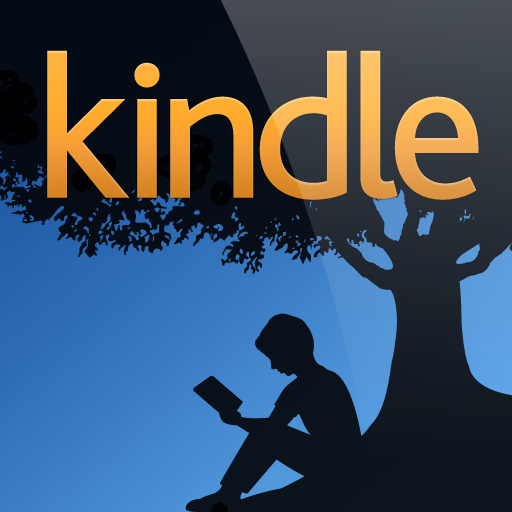
Apple's New Policy Might Keep iOS "Kindle" App Going, But Amazon's Tablet Plans Could Be Affected
June 13, 2011
Some time ago, I wrote this piece, highlighting my thoughts about Amazon's upcoming foray into the curated, content-driven tablet market atop Google's Android OS. My opinion that an affordably-priced (yet fully-featured) Kindle slate is the competing industry's best chance at putting a dent in Apple's towering form-factor mindshare remains completely unchanged. Indeed, I believe Amazon, fueled by its copious electronic media coffers, has the potential to offer a compelling reason for many users to make the switch, thereby giving some actual relevance to Android as a premium mobile offering.
However, with the recent news that Apple has changed its in-app subscription policies App Store-wide, the approach Amazon is likely to take will be slightly different than I'd previously imagined.
Before, I assumed Amazon -- with its new Kindle tablet -- would leverage the (impending) removal of its iOS app from iTunes into increased visibility for whatever LCD-based offering the company's currently designing. In fact, as offensive strategies go, I thought that course of action might best highlight both Amazon's tablet entry and, to the general masses, the growing importance of dedicated content-delivery behind any hardware they choose to buy.
Now, unless Amazon voluntarily pulls its Kindle app from Cupertino's ecosystem (which is unlikely and would be quite a lot worse in terms of public relations than had the app been killed by Apple itself), they won't have the option to take advantage of that tailor-made advertising bonus. And, though Apple is being critically lauded for owning up to what the tech community largely considers a drastic mistake in policy, I'm not so sure Amazon is as enthused as the rest of us. Instead, they are probably going to have to reconsider -- at least in part -- what manner of marketing to put forth once their tablet finally preps for public release.
One alternative that springs to mind is to peg its Google-powered Kindle slate as a lower-cost (but content-rich) alternative to Apple's iPad lineup. It's true that many of us -- myself included -- already refer to Android as "the poor man's iOS," but no actual competing product yet shipped could accurately be called "the poor man's iPad." Provided Amazon releases its tablet in a similar form factor to Apple's bestseller, having the public identify it by such "deprecatory" phrasing wouldn't necessarily be a bad thing. Truly, Amazon wouldn't tout its product in those terms; but, if the moniker sticks, I think it would serve to sell quite a few units and establish a substantial international following.
I expect the Amazon tablet to be of significantly cheaper build quality (or at least constructed using far more plastic) than the iPad or iPad 2, as the reader-centric device will have to be a lot lighter than what Apple's put out. We've heard of inklings here and there that Amazon's price-point needs to stay at or under $350 to be compelling, and, while I certainly agree, Amazon is not at all afraid of subsidizing some of the manufactory cost for the promise of future purchased media over a lifetime of product use. For the end-user, then, that means the company could conceivably sell a much more expensively-crafted unit for a fraction of what any similar competition charges.
That, by itself, could provide enough of a kick towards the tablet's adoption to almost immediately place it second to Apple in slates sold; and, regardless of what size of screen the launch product houses, everyone should be concerned about the market share (and mindshare) they're going to lose to this thing.
Apple, too, should take careful notice, and I genuinely hope Amazon's cloud solution will introduce some unique elements compared with what Steve Jobs outed last week. Apps -- especially the quality of apps -- will remain an easy advantage for iTunes, but, with Amazon's own app store and approval metrics already in place, the retail giant could easily create a legitimate, quality-focused app environment that adds real worth to its book-, magazine-, and newspaper-selling presence.
Still, Apple will continue to sell iPads as fast as (and in many cases, faster than) they're produced each model year. Until that changes, then, there will be little to challenge its overwhelming dominance in the minds and pocketbooks of people the world over. But Amazon has the opportunity here to accomplish two things all other Android tablets have so far failed to do: bring scores of less wealthy customers into the tablet-computing fold and steal a small percentage of iPad users from their beloved slabs of metal and glass.
Thirteen months ago, when HP bought Palm, I said to a friend that I'd actually consider purchasing a webOS tablet if one ever got made. One did, and I still might. But, while I believe Palm's last hurrah is miles ahead of Android in the user-friendliness and UI arenas, Amazon's upcoming Android slate has siphoned much of my TouchPad enthusiasm and reallocated it for itself.
If Amazon does it right, they can absolutely play second fiddle.
And that's a heck of a lot better than missing the concert.

